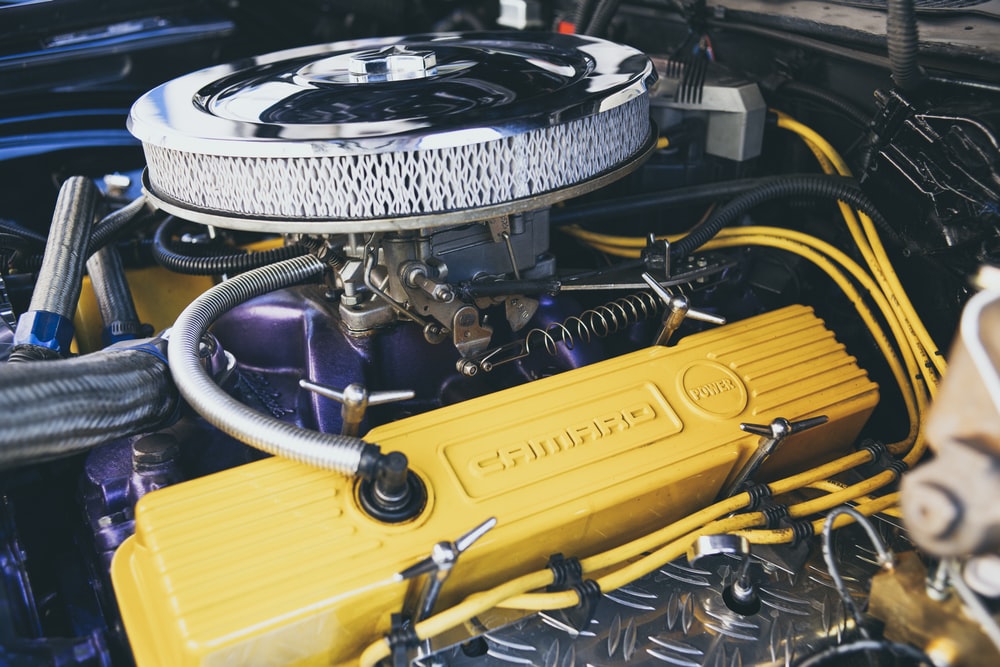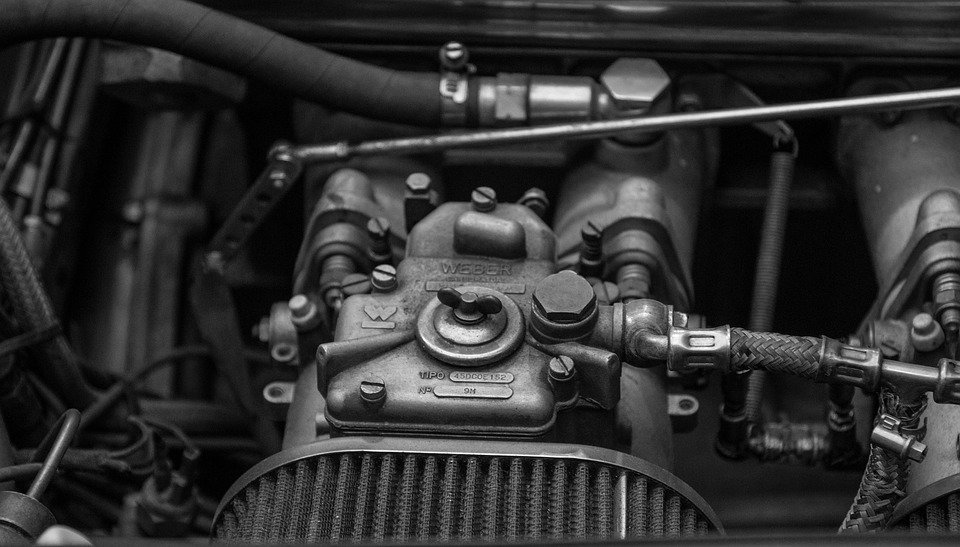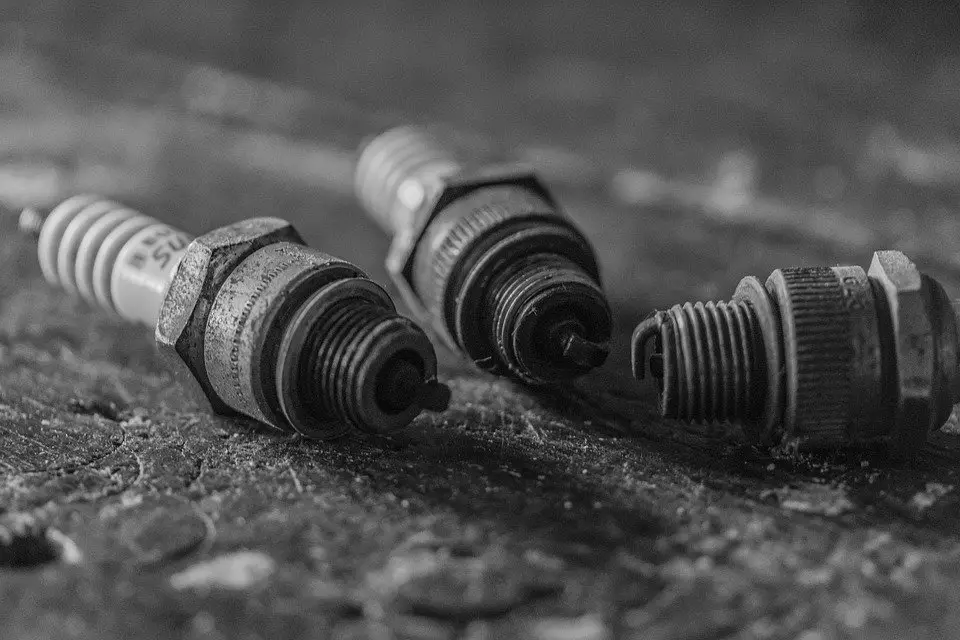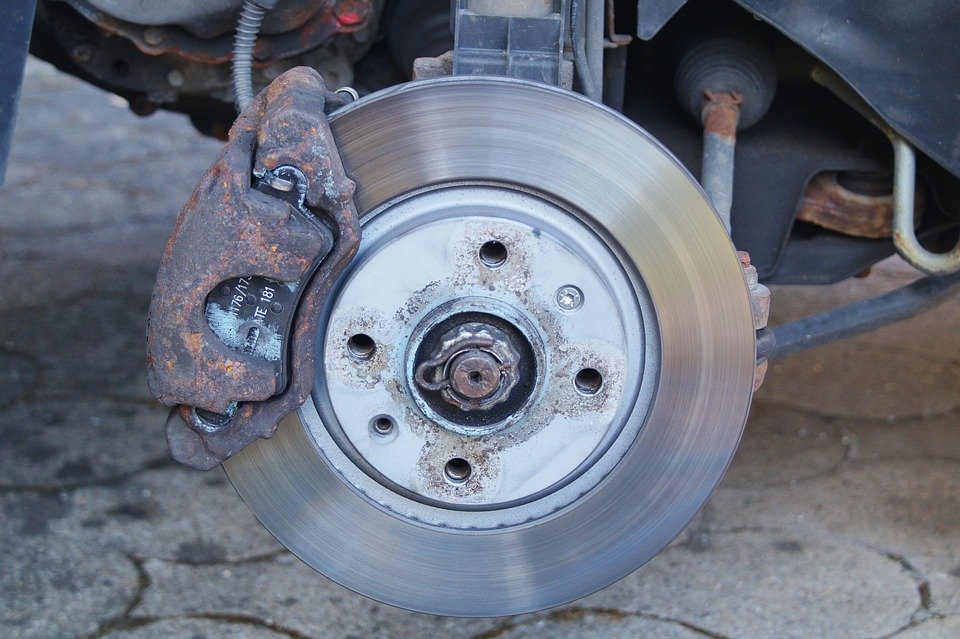A number of different factors can cause your car to shake. These can range from insufficient RPM, braking issues, imbalanced tires, brake pedal, steering wheel, wheel bearings, ball joints, worn-out spark plugs, and even a misaligned vehicle. Depending on the cause and make and model, it may or may not be safe to continue your journey if the car is shaking continuously.

(Image from unsplash.com)
Has your car started to shake with no obvious cause, either when it’s idle or when braking? Then you may be looking at worn out engine components or a malfunctioning braking system.
Vibrations and shudders caused when braking is the result of a bad braking system. However, idling vibrations signify a much more dire and critical issue with the engine. It is important to always get the vibrations checked out.
Read on to find out more about what causes a car to shake and what steps you can take to resolve the issue.
Why Is My Car Shaking When Idle?
Insufficient Idle RPM:
What’s happening in your vehicle when it’s idling but not completely off? Idling means that your drive shaft is running at sufficient RPM to prevent the engine from stalling and your car shakes non-stop.
Idling takes place anywhere between 600 to 1,000 RPM in most vehicles. A device known as the IAC Valve (Idle Air Control) is responsible for managing this. However, due to excessive use and carbon deposits, the IAC valve might become damaged or clogged.
A clogged engine air filter may also contribute to this problem.
Solution:
Since the problem is more or less permanent, few solutions exist for this. You can hire a trained professional to inspect the throttle body and clean it out. They may also clean out the air filter.
Problems with the Fuel Intake:

(Image from pixabay.com)
All engines require fuel. But what happens when your engine isn’t being loaded with the right amount of fuel? Well, for one thing, you might notice that your car shakes, as it’s being overloaded with work that it’s incapable of handling.
In this case, your fuel intake is to blame. Your car’s mileage and the amount of abuse that you’ve subjected it to all contribute to a faulty fuel intake system. There can be two underlying problems causing this: clogged intake lines, or a damaged fuel pump.
Solution:
Your mechanic can take care of the clogged intake lines. It shouldn’t cost you much. But they may charge extra for the initial inspection and diagnosis.
The fuel pump, however, will take more work, and quite possibly a replacement, which will cost you a significant amount. A recent incompatible oil change may also cause issues with the engine.
Damaged Motor/Engine Mounts:
Engine or motor mounts are the mounts that support your engine and keep it hoisted away from the main chassis of your car.
However, when your engine mounts get damaged, misplaced, or corroded, things can get shakier. Violent vibrations from your engine can get translated through the body of the car, resulting in a ride that’s less than comfortable.
Depending on your make and model, your car may employ a more active engine mount system. These mounts are operated via vacuum hoses. And an Engine Control Module (ECM) is directly responsible for their work.
Solution:
Your mechanic can take a look at your mounts and determine if they’re what is causing the problem or not. The mechanic may also offer to repair or replace the mounts if they’re corroded.
Clogged vacuum hoses can also be cleaned or replaced. A malfunctioning ECM, however, will only require an OEM replacement.
Corroded Spark Plug:

( Image from pixabay.com)
The spark plug, as you may be knowing, is the device that generates the spark responsible for igniting the fuel in your engine. When the spark plug fails, however, you know you’re in for a bumpy ride.
Failure of the spark plug can lead to insufficient ignition of the fuel. This results in your engine misfiring and shaking.
Solution:
You can try cleaning out the spark plugs if you’re really down for it. But they cost so little, and are so readily available, that most people opt to get them replaced. You can try replacing them yourself. But due to the sensitive nature of the task, it’s better to have a professional do it.
Loose Vacuum Hose:
Vacuum hoses may also cause your vehicle to shake. Your vehicle packs a multitude of vacuum hoses that are attached to your engine at key points. Vacuum hoses serve the purpose of evacuating unwanted exhaust gases from the engine.
These hoses, while mounted securely in place, can become disconnected or clogged at any time. And when that happens, it’s usually obvious. Your engine will start misfiring, along with losing power, stalling, and shutting down.
Solution:
Diagnosis of the problem is easy. And luckily, vacuum hoses don’t need replacement most of the time. Instead, you can clean them out, add some anti-clogging agents, and secure them tightly.
Why Is My Car Shaking When Braking?
Braking Rotors:
Braking rotors are what your brake pad clasps on to in order to help your tires come to a stop. Worn out rotors can translate shudders to your tires, resulting in your car vibrating at higher speeds. It can take some time to diagnose the problem, so be patient with your mechanic.
Solution:
Get a technician to properly assess whether the rotors are the culprits or not. If they are, your technician may offer to either replace them (if they’re worn out), or align them back in place.
Brake Calipers Sticking:

(Image from pixabay.com)
Brake calipers are an integral part of your brake mechanism. They, along with the brake rotors and the brake pads, form a trio that helps your tires decelerate. If your drum or disc brake calipers are sticking to each other and aren’t able to press against the tires correctly, then this can cause vibrations.
Solution:
Luckily, diagnosing the problem is easy and fairly simple. If your car shakes only in the steering wheel and nowhere else when braking, then your brake calipers could be the culprit. A number of components could be causing the problem here, such as the caliper piton or the bolts. Your mechanic will perform the inspection and suggest solutions.
Tires, Wheel, or Cassis Alignment Issues:

(Image from pixabay.com)
Unbalanced tires, loose wheel bearings, wheels, or chassis, can lead to overloading on one side of the car, which can lead to uneven braking. A bent axle could cause your car to shake.
Fortunately, the problem can be easily detected. If your car is shaking while driving at speeds of up to 80 km/h, then you most likely have a misaligned vehicle.
Another easy test you can perform is to drive the car at 80 km/h. Leave the steering wheel for a while, and see if the tires swerve towards any one direction. Keep your hands close to the steering wheel for emergency purposes.
Solution:
Incorrect wheel alignment can easily be returned to a normal offset, either by yourself or a mechanic. You only need to fix the loose lug nuts. Here’s a handy video guide to help you align your wheels yourself:
Suspension Needs Renewing:
Another reason your car shakes when you hit the brake pedal is the problematic suspension. Worn out suspension can lead to you feeling each and every bump on the road, and your car’s response to it.
Unfortunately, “suspension system” is a very broad term. Your vehicle uses a number of different suspension components, such as tie rods, tire bearings, tires, and springs. For this purpose, diagnosing and pinpointing the problem can take a lot of effort.
Solution:
Since the problem requires an in-depth inspection, you’ll need a mechanic to take a look at the suspension. And based on what went wrong, they will offer solutions, which can range from simple repairs to full replacements.
Is It Safe to Still Use My Car If It’s Shaking?
It depends on what was initially causing the problem. If you experience idle car shaking, then you should most likely get the problem checked. Issues such as worn out mounts don’t require immediate attention. However, issues with the spark plugs, fuel intake, vacuum hoses, and tire rotation most definitely need to be fixed. If you don’t fix them, you run the risk of your engine stalling midway through your road trip.
As for shaking when braking, it’s completely up to you. This type of shaking doesn’t have a direct impact on your engine’s performance. However, some causes may pack some underlying problems. For instance, worn out brake pads can lead to malfunctioning brake pedals.
Conclusion:
A vibrating vehicle is never a good sign. If your car shakes when it’s idle, then have a full engine inspection performed. You never know what could be causing the issue. And your ride will become much safer once the issue is resolved.
Braking shudders can be just as dire as idling shudders. They signify a problem with your brake components, which needs immediate rectification.
So get regular vehicle maintenance and procure a safer ride for yourself and your loved ones. And check out our recent posts for more automotive guides.

